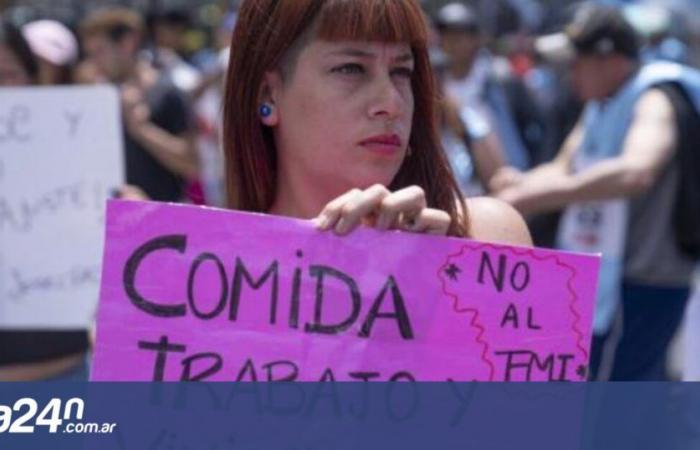Yesterday, Thursday, June 13, the national government celebrated the 4.2% inflation reported by INDEC for last May, as it confirmed the continuity of the slowdown in price increases.
However, as we anticipated in a previous notethe self-limitation of the ruling party around an agenda that centrally revolves around reducing inflation runs the risk of being outdated with respect to social demands, which evolve alongside an economic recession that explains the drop that the ruling party celebrates. .
According to the latest national survey by consulting firm Delfos (chart above), in June corruption grew 4 percentage points month-on-month and displaced inflation (which fell 8 pp) as the main perceived problem; the lack of work is consolidated as third on the podium (11%), while poverty and misery grow 5 percentage points (pp), up to 9%; The economy in general closes the top 5, with 7%.
Then, the mentions related to President Javier Milei as a problem in itself add up to 9%.
This change in priorities is also seen in other recent national surveys, such as the one carried out by D’Alessio/IROL at the end of May, which registered a triple tie between economic uncertainty (68%), insecurity/crime and inflation (both with 66% , graph above).
Until last April, although declining, inflation was still up. Outside the podium, government adjustments account for 53% of multiple responses, while the lack of proposals for growth closes the top 5 (graph below).
Along the same lines, the recent measurement by Reale-Dalla Torre (RDT, graph below) reported that inflation is declining in citizen concerns (it went from 75% at the end of last January to 60.2% at the end of May), while the loss of purchasing power (went from 60.70% to 65%) and employment (rose from 39.10% to 52%) grow.
The measurement by the University of San Andrés (Udesa) at the end of May also showed inflation declining on the list of main problems after having been at the top of the evolutionary series for several months (graph below): with 34%, was in a technical tie with low salaries (36%) and poverty (35%).
Outside the podium, crime/insecurity reached 31% and lack of work 28% (graph below).
Zooming in on Córdoba, the provincial survey carried out by Pulso Social in June showed the economy at the top of national problems, with 19% of spontaneous responses; Inflation came second, with 14%, in a technical tie with corruption (13%).
Outside the podium, 10% mentioned Milei as a problem in itself, with the same proportion as poverty (graph below). If we compare that 10% with the data that Delphi registered at the national level (9% accumulated), we see that the incidence is practically the same.
Finally, in the measurement of guided economic problems, between last April and June low wages are consolidated in the first place at around 40%, while inflation falls 9 pp, poverty and unemployment rise 4 pp and labor instability passes from 5% to 6% (graph below).
In summary:
1) Five recent surveys show inflation in decline on the social agenda, while other problems linked to the economic situation are advancing, such as lack of work, poverty and low salaries.
2) the emergence of corruption at the national level and in Córdoba within the top 3 suggests that the scandal in the Ministry of Human Capital permeated the concerns of the electorate
3) both in the country and in Córdoba, the figure of the president grows as a problem in itself.






